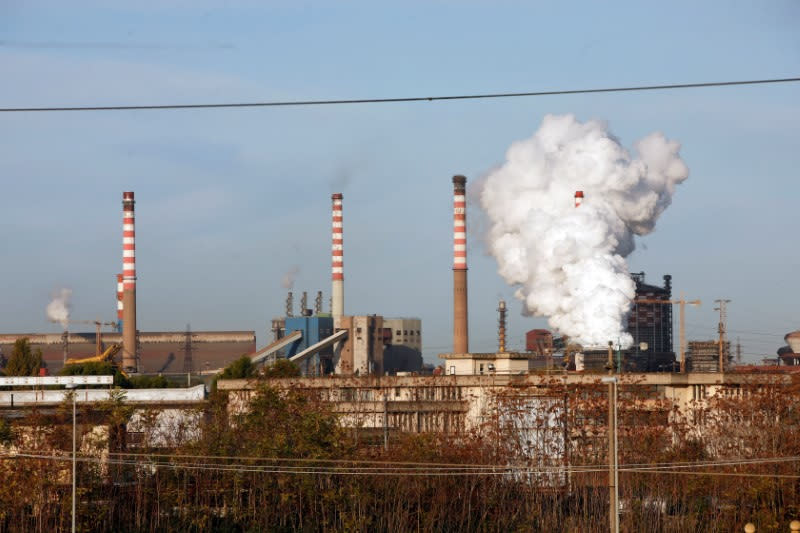Factbox: ArcelorMittal's Italian business runs into legal and financial woes - again

(Reuters) - Italy's government could put the former Ilva steel business under special administration, Industry Minister Adolfo Urso told Reuters on Thursday, after its main shareholder ArcelorMittal rejected a state-backed plan to keep the group afloat.
The standoff over Acciaierie d'Italia (ADI), as the company is now known, is a major headache for Prime Minister Giorgia Meloni, as thousands of jobs in Italy's underdeveloped south are at risk.
Here is an explanation of what has gone wrong and what might happen next.
WHAT IS ILVA/ADI?
Ilva was founded in 1905. Its biggest plant took root in the southern city of Taranto in the 1960s. It produced more than 10 million tonnes of steel a year at its peak, but following scandals over its appalling environmental record the group was placed under state-supervised administration in 2015.
ArcelorMittal, the world's second-largest steelmaker, took control of Ilva in 2018 and it currently owns 62% of ADI, while state-owned investment agency Invitalia has the remaining 38%.
Some 8,200 people directly work at the steelworks in Taranto, while a further 3,500 are employed in related industries.
WHAT HAS GONE WRONG?
The company has never recovered from its dramatic downturn last decade. Industry Minister Adolfo Urso told parliament on Thursday that ADI missed production targets, making less than three million tonnes of steel in 2023 against a goal of four million.
The company has pledged to decarbonise its operations, but this will cost billions of euros.
Last September, the government said it would finance environmental initiatives worth 2.27 billion euros ($2.5 billion), tapping European Union (EU) funds, in return for further investment from ArcelorMittal, but the memorandum of understanding is frozen for now.
ArcelorMittal has complained that Rome did not honour investment pledges made in 2020, when Invitalia agreed to take its stake.
The government this week proposed that Invitalia inject 320 million euros into ADI and then raise its stake to 66%, as part of a broader plan to strengthen the company's capital.
ArcelorMittal, however, refused to provide guarantees that it would provide further investments even as a minority shareholder, sinking the proposal.
A source close to ArcelorMittal said the group was ready to back the government's plan provided that it would continue to have similar governance powers to Invitalia.
But Urso said that such option was not acceptable for the government also in light of European state aid constraints.
WHAT'S NEXT?
Urso said "drastic action" was needed to relaunch ADI, adding the government intended to outline a national steel plan.
The case risks ending in court with both the government and ArcelorMittal accusing each other of failing to respect their mutual commitments.
Among the likely short-term solutions the government is considering is to place the operations under special administration, appointing one or more commissioners to avoid ADI being shut down.
That option would be similar to Chapter 11 bankruptcy in the U.S., that allows a business or individual to reorganize its debts and obligations. It could also help the government buy time while looking for a new industrial partner for ADI.
The unions are urging Meloni to re-nationalise the group, a move that would be at odds with Rome's stated goal to cut its stakes in state-owned companies. It is also not clear if the EU would sanction such a move, or if ArcelorMittal would turn to the courts to try to prevent it. ($1 = 0.9121 euros)
(Reporting by Giuseppe Fonte and Angelo Amante, Editing by Crispian Balmer and Keith Weir)
